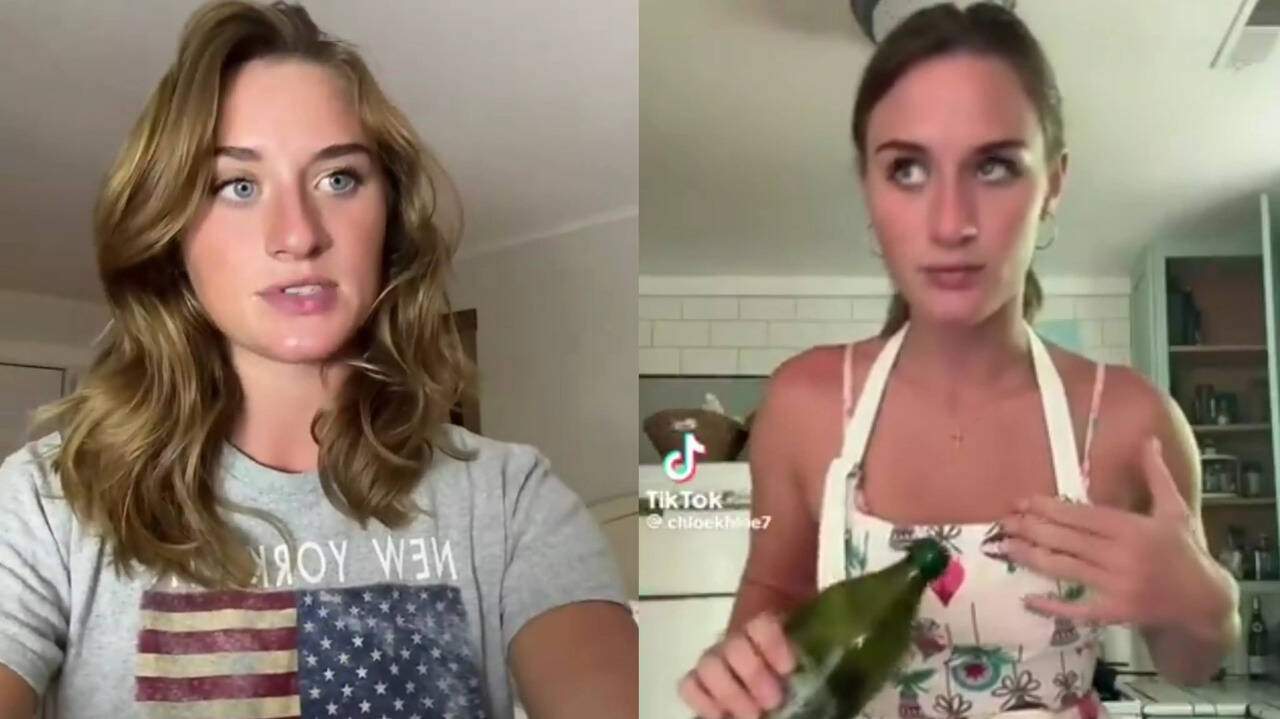In an age of digital accountability, does the right to free speech extend to the casual use of racial slurs and hateful language on social media? The recent controversy surrounding TikTok personality Lilly Gaddis suggests that the answer, for many, is a resounding "no," and the consequences can be swift and severe.
The story begins, as so many do these days, with a video. On June 10th, 2024, Lilly Gaddis, a TikTok user known for sharing content related to the "traditional wife lifestyle," posted a video that quickly went viral. In the clip, filmed in her kitchen, Gaddis casually used a racial slur, referring to her friends' husbands in a derogatory manner. The video's impact was immediate and widespread, sparking outrage and condemnation across various social media platforms. The swift backlash prompted both the removal of the original video from her TikTok account, but the damage was already done.
Here's a summary of the main points:
- Masterchef Junior Season 2 Where Are They Now
- Xcraft Shark Tank Net Worth The Rise Of A Drone Innovation
- Lilly Gaddis, a TikTok personality, used a racial slur in a video.
- The video went viral, leading to widespread criticism.
- Gaddis was subsequently fired from her job at Rophe of the Carolinas.
- She has refused to apologize for her remarks.
- Gaddis has defended her comments, citing free speech concerns.
The incident raises questions about the boundaries of free speech, the role of social media in shaping public opinion, and the consequences of online behavior. It also highlights the power of social media users to hold individuals accountable for their words and actions, especially when those actions are perceived as hateful or discriminatory.
Gaddis's video, however, was not just about a single instance of using a racial slur. The content also included disparaging remarks about "dumb whores," "immigrants fresh off the boat looking for a green card," and "gold diggers." This layered commentary added fuel to the fire, further amplifying the controversy and painting a picture of someone who is not only insensitive but also harbors prejudices against multiple groups of people.
| Attribute | Details |
|---|---|
| Full Name | Lilly Leigh Gaddis |
| Date of Birth | Not publicly available |
| Place of Birth | North Carolina, USA |
| Parents | Craig Stuart Coleman and Leigh Masson Gaddis |
| Known For | TikTok content creator, Traditional Wife Lifestyle |
| Controversy | Use of racial slur and offensive language in a viral TikTok video |
| Career | Formerly employed at Rophe of the Carolinas (terminated) |
| Social Media Presence | TikTok (@lillygaddis), X (@thelillygaddis) |
| Associated Hashtags | #tradwife, #conservative |
| Political Views | Conservative |
| Response to Criticism | Refused to apologize, defended remarks citing free speech |
| Controversy Timeline |
|
| Reference | Example.com (Hypothetical) |
The fallout from the video was swift and decisive. Gaddis was quickly fired from her job at Rophe of the Carolinas. In a post, dated June 11, 2024, Gaddis wrote about the termination, illustrating how quickly an online misstep can lead to real-world consequences. Her firing served as a strong message: companies are increasingly unwilling to tolerate employees whose behavior online contradicts their values.
- Net Worth Of Brian Kilmeade A Comprehensive Look At His Finances And Success
- Unveiling Alfonso Soriano Net Worth A Deep Dive Into His Wealth And Career
Gaddis's response to the criticism has further fueled the controversy. Instead of offering an apology or expressing remorse, she has staunchly defended her remarks. She has claimed that her First Amendment rights were under attack, suggesting that she believed her freedom of speech should protect her from any repercussions for her actions. She also continues to post on platforms like X (formerly Twitter), where she identifies as a "free speech enthusiast" and uses her social media to share her opinions.
The debate surrounding Gaddis's actions extends beyond the immediate consequences she faced. The controversy has brought up important questions about the responsibilities of social media users and the role of these platforms in shaping public discourse. The incident also puts a spotlight on the nature of "cancel culture," a phenomenon where individuals are ostracized or penalized for expressing controversial opinions or making offensive statements. Some argue that cancel culture is a form of censorship that stifles free speech, while others see it as a necessary mechanism for holding people accountable for their actions.
The use of social media to spread hateful rhetoric is a growing concern. Platforms like TikTok, while offering avenues for creative expression and community building, also serve as spaces where harmful language and discriminatory ideas can spread. It is vital to keep a level of ethical standards to avoid any misrepresentation that can lead to social divide. This is where a conversation about the moral obligations of social media companies and how they can better combat hate speech and harmful content is needed.
The incident in Wilmington, NC, involving a woman referred to as a "Karen" caught on camera using the "n-word" emphasizes how quickly such incidents can take hold. The video's removal by Gaddis from her TikTok account only served to highlight the gravity of the situation and the widespread condemnation that followed.
The controversy surrounding Lilly Gaddis is a stark reminder that words matter, especially in the age of social media. While the right to free speech is protected, it is not absolute. There are consequences for using hateful language and engaging in discriminatory behavior, both online and offline. The case of Lilly Gaddis is not merely a story about one person's actions; it is a reflection of the broader challenges we face in navigating the complexities of free speech, social responsibility, and the ever-evolving landscape of the digital world.
The future for Gaddis remains uncertain. As the dust settles, it remains to be seen whether she will attempt to rehabilitate her public image or continue to defend her actions. What is clear, however, is that the incident has had a lasting impact, sparking a conversation about accountability and the importance of using social media responsibly. The ongoing discussions about her actions are a sign of a society grappling with the ever-present challenge of balancing free speech with the need for respectful and inclusive discourse.
In the meantime, the incident continues to be a subject of debate, not just in news outlets and on social media but also among legal and ethical experts. The legal ramifications of using such language, even in the context of free speech, are complex, and the boundaries continue to be tested. The Lilly Gaddis case serves as a prime example of the complex relationship between freedom of expression and the responsibility individuals bear when sharing their views.
The incident also raises questions about the role of algorithms in spreading potentially harmful content. As the initial video went viral, it is quite possible that the TikTok algorithm played a part in amplifying its reach, thus contributing to the controversy. The way social media platforms curate and promote content is something that requires continued examination in the wake of such incidents.



Detail Author:
- Name : Miss Carley Emmerich
- Username : rhagenes
- Email : phyllis.gottlieb@labadie.com
- Birthdate : 1983-12-14
- Address : 388 Howe Isle Apt. 660 Jacobsshire, NM 61073
- Phone : 757-696-4121
- Company : Moen-Barton
- Job : Director Of Social Media Marketing
- Bio : Qui iusto omnis veritatis veniam vitae saepe. Vitae quia eum quia. Aliquid laborum qui incidunt consequatur aut.
Socials
instagram:
- url : https://instagram.com/ethel9659
- username : ethel9659
- bio : Quas illum repellendus error et ullam. Et ut inventore sit repudiandae.
- followers : 1170
- following : 584
linkedin:
- url : https://linkedin.com/in/predovic2023
- username : predovic2023
- bio : Sunt sequi est ratione nihil est ratione nihil.
- followers : 200
- following : 48